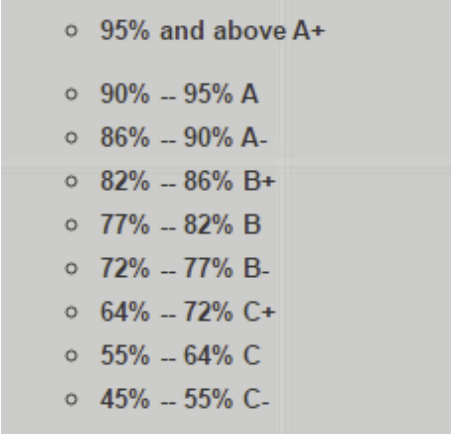Course Syllabus:
Course: University of Oregon Environmental Studies 202
Term: 8-Week Summer 2018
Instructor: G. Bothun, Dept. of Physics
- email: dkmatter@uoregon.edu
- office hours: all done via email
Overview of the course and course material:
In this course, students explore the value and limitations of science in understanding environmental issues; become more familiar with scientific concepts underlying selected environmental issues and quantitative techniques that scientists use to evaluate these issues; develop an understanding of how science is used to manage natural resources to promote a sustainable economy; practice thinking creatively, analytically, and without bias (i.e. thinking critically); explore how environmental science issues pervade our lives; and gain confidence making decisions about these issues based on their knowledge and values.
Three basic environmental issues are examined in some depth:
- Global Energy Use
- Natural Resource Management
- Climate Change and Climate Policy
along with consideration of other kinds of environmental issues (Salmon, fresh water resources, human population growth).
Quantitatively, we will be making use of some statistics and statistical inference in studying these areas. Various statistical analysis tools will be provided for you. While this part of the course will be your least favorite it will also turn out to be the most useful information that you will learn. In a nutshell, the reason that we are very poor at solving either environmental problems or infrastructure problems (e.g. energy generation) is that we are SCARED to be quantitative and therefore usually WISH for solutions (just watch CNN any night), rather than using data to inform us of solution space. In other words, part of this course is about how you shape environmental debate/policy around real data and how ultimately, policy is limited by the reliability and availability of relevant data
We will follow this approach in the contexts of global warming, energy generation, salmon restoration, pollution and other real world environmental problems. The necessary tools will be provided to you via simple programs that can be executed within a Web browser. For purposes of this course, it is not necessary to understand very much of the theory behind measurements but rather to know what can be extracted from a date-set that is meaningful. In addition, this course will emphasize graphical literacy (since new and robust graphing tools are now available). Graphical representation of data/problems is a very good skill to acquire.
We will be using quantitative methods to establish the scale of some environmental issue because that is often lost in the debate. A sense of scale is required if one is to properly understand the problem. However, this ourse will not be very technical, although some mathematical descriptions will be absolutely necessary. Grading techniques, however, will be designed so that people with weak math backgrounds or aptitudes will not be penalized. Conceptual understanding is far more important than plugging numbers in to an equation to get a mathematical answer, as if that equated to the truth.
The basic course material and relevant links will be found in the Modules section. The course is broken up into 8 Modules each to represent material for one week. At the end of each module there will be a quiz, activated on Friday of that week. It is important to not fall behind in accessing the material in these modules. Not all of the modules are available yet.
Course Requirements and Grading:
1. There will be 4 homework assignments. This assignments will be fairly in depth and require outside reading to better learn and do analysis on the various technologies or problems that we will be studying. These assignments are likely the best way that your gonna learn the course material. Each assignment will be due on Thursdays every two weeks.
Homework is graded on a level of effort scale as the assignments are open ended (to some extent) and will allow you to research a topic at the level of depth you want to to provide a reasonably complete view of the question/subject.The goal here is for you to access multiple sources of information and then synthesize a coherent point of view in responding to a particular question rather than to simply cut and paste information from some Web site. This will easily be detected and will detract from your grade. These assignments are supposed to supplement and compliment the course material and are designed to give you alternative avenues of exploration and learning. Sometimes the homework assignments contain questions pertinent to the material within the module and sometimes it contains questions relevant to future modules.
2. For on line courses at the UO there is now is a (quite silly) proctoring requirement for exams. Now that may make some sense for ON line courses that are part of the Academic Year schedule - it makes no sense for Summer on line courses as most of the enrolled students aren't anywhere near campus and many are travelling continually. To get around this, again quite silly, requirement, we will NOT have a Midterm of a Final. Instead, those will be done via WEEKLY quizzes, that are available on Fridays.
Your lowest quiz score will be dropped. The quizzes will contain questions and material that have been part of past midterms and finals.
3. Course Grading Breakdown:
45% Homework (so these are important so don't blow them off doing a cursory job just before the deadline)
55% on 7 of the 8 quizzes.
4. Grading scale is determined by your weighted percentage according to the following scale:

|